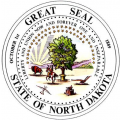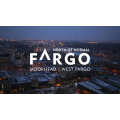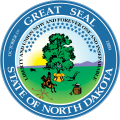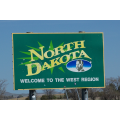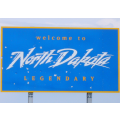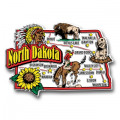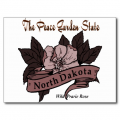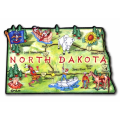North Dakota’s expanding healthcare industry is creating many opportunities for aspiring nurses. The state has programs of study for three nursing roles: certified nursing assistant (CNA), licensed practical nurse (LPN), and registered nurse (RN).
Nursing assistants can complete a brief training program in just a few months. CNAs help sick and injured patients complete critical tasks like dressing, eating, and moving around. North Dakota has 7,000 licensed CNAs who earn a median annual salary of approximately $28,000.
North Dakota
We've organized a comprehensive list of North Dakota nursing schools. Below you'll find information on specific nursing programs such as LPN certificates and ADN, BSN, and MSN degrees.
North Dakota nursing programs and careers
City-specific information
If you would like to start a nursing career in the Fargo-Moorhead metropolitan area, you will need a degree or certificate from an accredited nursing school. Fortunately, the metro area of more than 230,000 residents is home to several accredited schools with highly regarded nursing programs. North Dakota State University in Fargo offers bachelor of science in nursing (BSN) and doctor of nursing practice (DNP) degree programs. The university also has a BSN track for existing registered nurses (RNs), called an RN-to-BSN completion program.
After several years of work experience, many registered nurses (RNs) choose to seek out career advancement opportunities. In many cases, this requires earning a higher degree. The master of science in nursing (MSN) is the most popular choice. Several of North Dakota’s premier universities offer highly regarded MSN programs, including University of North Dakota, North Dakota State University, and University of Mary.
Nursing is a lucrative and in-demand profession. In fact, the Bureau of Labor Statistics reports that the U.S. is home to more than 2.7 million registered nurses (RNs). This figure is expected to increase by 19 percent over the next decade. To join this fast-growing field, many aspiring RNs choose to enroll in a bachelor of science in nursing (BSN) program.
Overview of the BSN degree
In just two years, an associate’s degree in nursing (ADN) program can prepare students for initial nursing licensure. North Dakota has two types of prelicensure associate’s degree programs: one for aspiring registered nurses (RNs) and one for aspiring licensed practical nurses (LPNs).
RN associate’s degree programs
Licensed practical nurses (LPNs) perform a number of vital tasks in hospitals, extended care facilities, and other healthcare settings. They monitor blood pressure and other vitals, change bandages, insert catheters, help patients bathe and dress, keep accurate medical records, and discuss care with patients and their family members. LPNs typically perform these duties under the supervision of registered nurses (RNs) or physicians.
LPN pathways
The all-in cost of nursing school includes more than just tuition, books, room, and board. Other important expenses include move-in start-up costs (like dormitory accessories or utility deposits), school and laboratory supplies, and of course transportation to and from campus. Many of these costs will vary significantly based upon the type of school and the length of program that the student chooses.
A private college or university does not receive the state government funding available to a public school. As a result, private nursing schools are more expensive than their public counterparts. They carry several distinct advantages, however. Because of their independence, private nursing programs can offer more rigorous coursework and classrooms with fewer students. Professors at private colleges typically have impressive backgrounds that are rich with personal academic achievements.
North Dakota is home to approximately ten public colleges and universities that offer programs for aspiring registered nurses (RNs) and/or licensed practical nurses (LPNs). Public nursing schools carry several distinct benefits. Most notably, they are significantly less expensive than their private counterparts because they are partially funded by the state government. Despite these cost differences, North Dakota’s public schools offer the same nursing degrees and certificates as private schools.
North Dakota’s expanding healthcare industry is creating many opportunities for aspiring nurses. The state has programs of study for three nursing roles: certified nursing assistant (CNA), licensed practical nurse (LPN), and registered nurse (RN).
Nursing assistants can complete a brief training program in just a few months. CNAs help sick and injured patients complete critical tasks like dressing, eating, and moving around. North Dakota has 7,000 licensed CNAs who earn a median annual salary of approximately $28,000.

